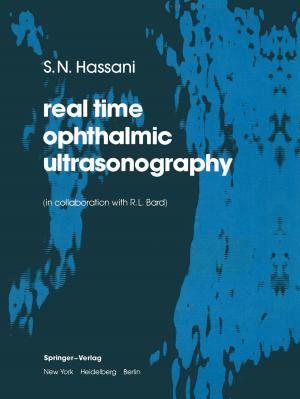The Brain as an Endocrine Organ
Nonfiction, Health & Well Being, Medical, Specialties, Internal Medicine, Endocrinology & Metabolism, Neurology| Author: | ISBN: | 9781461234807 | |
| Publisher: | Springer New York | Publication: | December 6, 2012 |
| Imprint: | Springer | Language: | English |
| Author: | |
| ISBN: | 9781461234807 |
| Publisher: | Springer New York |
| Publication: | December 6, 2012 |
| Imprint: | Springer |
| Language: | English |
In the middle of the 17th century, the great French philosopher Rene Descartes wrote (L'Homme, J. Le Gras, Paris, 1669) that a suitable stimulation of the brain results in two types of "movements": exterior movements, designed to seek desirable ends and to avoid undesirable or harmful ones and interior movements or "passions" which through the release of "animal spirits" regulate the heart, the liver, and other organs. When it appears appropriate to meet a threat with force, the passion of rage causes the release of strong spirits, whereas when avoidance appears to be the better choice, the passion of fear causes the brain to release weak spirits. We do not know what influence, if any, Descartes had on the thinking of Walter B. Cannon (Bodily Changes in Pain, Hunger, Fear and Rage, Appleton and Co. , New York, 1920), of Hans Selye (The Story of the Adaptation Syndrome, Acta, Inc. , Montreal, 1952), ofG. W. Harris or of R. Guillemin (Hypothalamic-Hypophysial Interrelationships. A Sym posium. c. c. Thomas, Springfield, 1956), but it is interesting to reflect upon the durable value of great ideas which constantly resurface even if modified by other ideas and by new techniques, as if propelled by a preordained intellectual imperative.
In the middle of the 17th century, the great French philosopher Rene Descartes wrote (L'Homme, J. Le Gras, Paris, 1669) that a suitable stimulation of the brain results in two types of "movements": exterior movements, designed to seek desirable ends and to avoid undesirable or harmful ones and interior movements or "passions" which through the release of "animal spirits" regulate the heart, the liver, and other organs. When it appears appropriate to meet a threat with force, the passion of rage causes the release of strong spirits, whereas when avoidance appears to be the better choice, the passion of fear causes the brain to release weak spirits. We do not know what influence, if any, Descartes had on the thinking of Walter B. Cannon (Bodily Changes in Pain, Hunger, Fear and Rage, Appleton and Co. , New York, 1920), of Hans Selye (The Story of the Adaptation Syndrome, Acta, Inc. , Montreal, 1952), ofG. W. Harris or of R. Guillemin (Hypothalamic-Hypophysial Interrelationships. A Sym posium. c. c. Thomas, Springfield, 1956), but it is interesting to reflect upon the durable value of great ideas which constantly resurface even if modified by other ideas and by new techniques, as if propelled by a preordained intellectual imperative.















